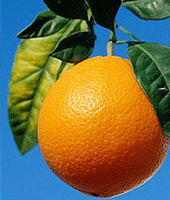Advertisement
Eating Organic
“How do we know it’s really organic?” The woman standing next to me in the produce section of our local natural food store pointed at the attractive display of fresh fruit and vegetables, shrugging her shoulders. “How can we be sure?”A store employee restocking shelves nearby overheard the question. “See the ‘certified organic’ label?” he … Continued

“How do we know it’s really organic?” The woman standing next to me in the produce section of our local natural food store pointed at the attractive display of fresh fruit and vegetables, shrugging her shoulders. “How can we be sure?”
A store employee restocking shelves nearby overheard the question. “See the ‘certified organic’ label?” he said. “All our produce is certified.”
Indeed, most, if not all, organic fare in Canadian health food stores and supermarkets today is certified by a third-party organization according to standards set at local, provincial, national or international levels. Certification is voluntary in Canada except in Quebec, where organic products must be provincially certified. In all other provinces, certification standards vary and are primarily based on the requirements of buyers, who in turn respond to consumer demands. However, each of the certifying organizations operates within a framework that meets or exceeds the principles set by the National Standard of Canada for Organic Agriculture. These principles endorse ecologically sustainable agricultural and soil management practices and specify minimum criteria for the various stages of organic food production, processing, handling and sales.
In the United States, the National Organic Program requires that agricultural products making an organic label claim must be certified by a non-profit, state or private certification organization accredited by the US Department of Agriculture. The European Union (EU) has strict standards for certification in organic food production, and any organic products that are destined for export to the EU must be certified by an accredited certification body.
Protection for the Consumer
There are about 40 organic certifiers in Canada, of which several are classed as international certifiers. Tom?Nimmo, the Canadian representative of Quality Assurance International, an international certifying organization based in San Diego, Calif., says organic growers, once certified, are inspected annually for compliance to the applicable organic standard. Consumers can thus feel confident that organic products they purchase continue to meet the independent verifier’s certification criteria year after year.
The increasing competitiveness of the organic market in Canada and abroad has resulted in more and more organic growers seeking certification. Many reputable natural food stores and supermarkets will not stock non-certified organic produce. Grant MacKinnon, produce manager at The Big Carrot Natural Food Market in Toronto, believes the current competitive environment has made organic retailers work harder to put certified organic items on their shelves. “One of the major benefits of certified organic foods for retailers and consumers it that there is an audit trail,” he says. “If ever there is a quality complaint, we can trace the documentation right back to the grower, including the time and place of harvest.”
So, if certified organic foods have become the standard for natural food retailers and national grocery chains, is there any need for the consumer to be vigilant? Non-certified organic products are still sometimes found on the shelves of smaller retailers and at farmers’ markets. According to Debra Boyle, president of the Organic Trade Association, foods and food products labelled “organic” but not “certified organic” should raise a red flag for consumers. “The fact that the grower or producer has not obtained certification tells me they don’t understand the meaning of the organic label,” she says. “The very concept of organic is rooted in the fact that every step from soil management and harvesting to storage and transport is clearly documented and traceable.”
At present, there is no law in Canada that prevents the inappropriate or even fraudulent use of the term “organic.” (In the US, new regulations require that products labelled “organic” must meet a minimum standard of being 70 percent certified.) Here, unless the label clearly states “certified organic,” the product could be anything but. Boyle encourages consumers to make sure the PLU code sticker on organic produce begins with a “9”, which indicates that it’s certified organic. “And if you’re buying a [premade] packaged organic product, check the label for certified ingredients,” she says. “It’s the only way to make sure you get the organic product you want.”




